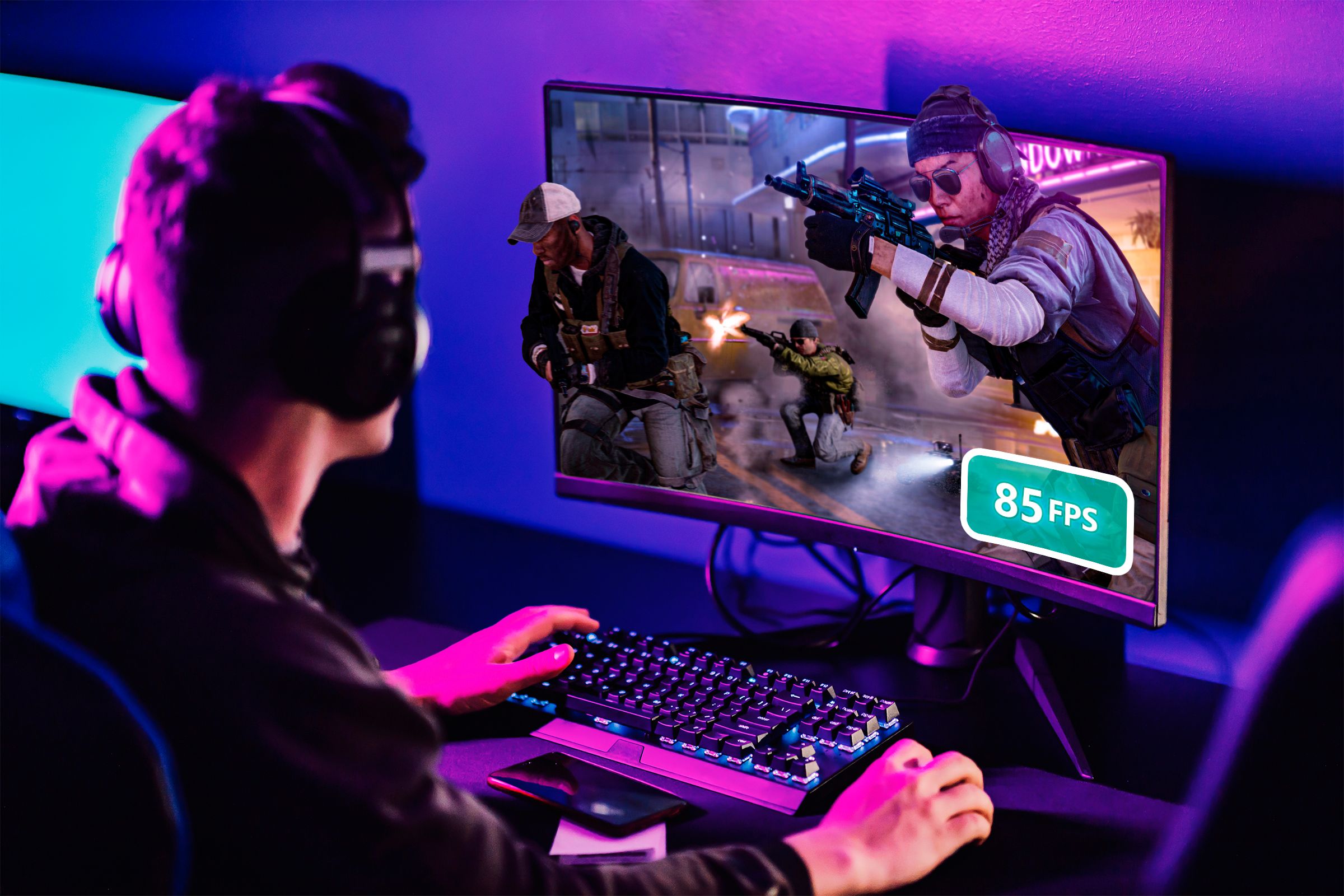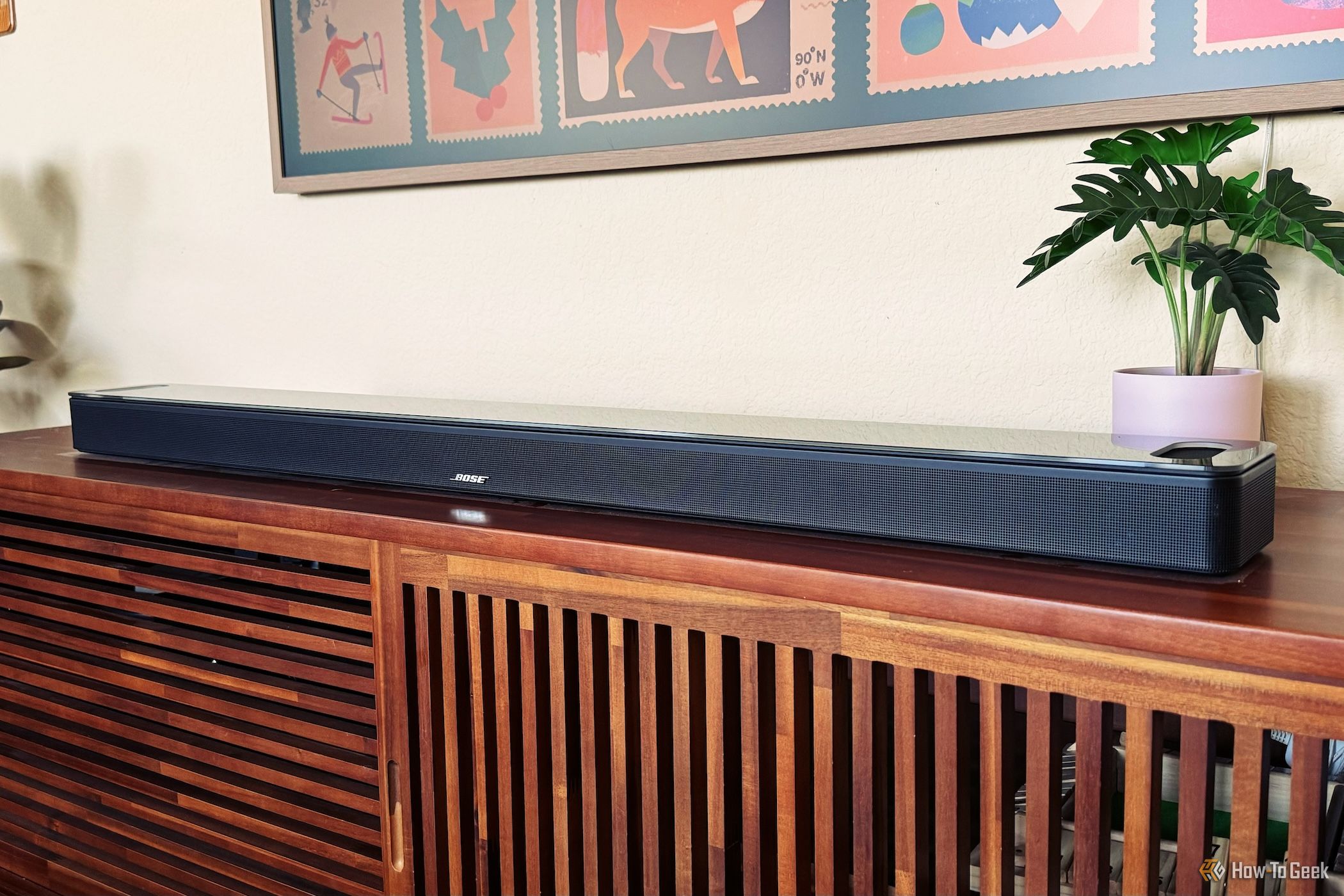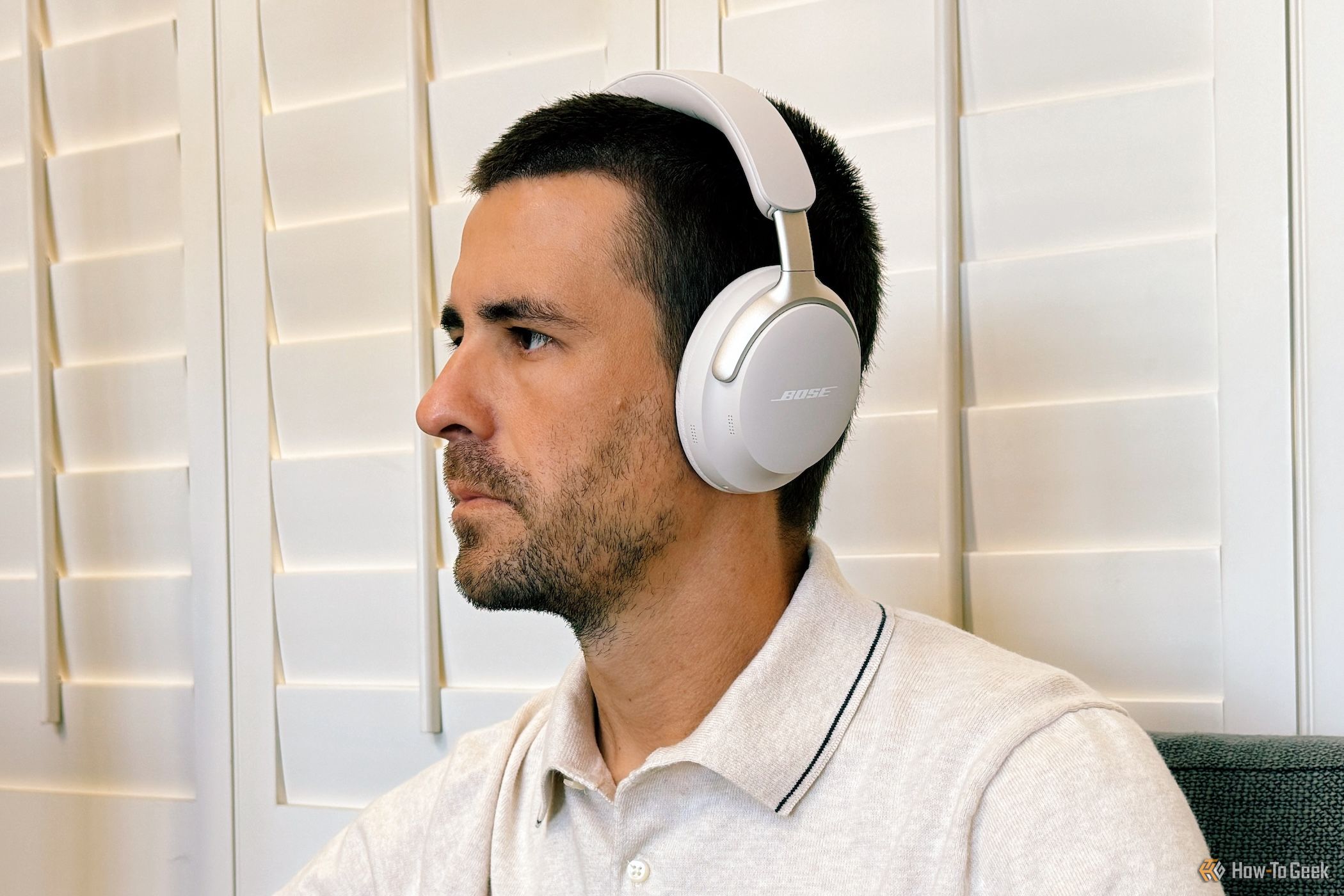
Key Takeaways
- Audio latency varies depending on how sound is transmitted, with wireless options like Bluetooth having more latency than wired.
- Issues with audio latency are critical for gaming, where delays can cause gameplay problems in both multiplayer and single-player scenarios.
- Latency can be problematic for TV and movies, but is less significant for music as quality and stability are typically prioritized over latency concerns.
Does it feel like you’re watching an old martial arts movie, where the lips and dialogue don’t quite match? This is just one example of how audio latency can mess with your enjoyment of content, but why does it happen?
What Is Audio Latency?
Audio latency is simply the amount of time between an audio signal being generated and you hearing that sound. So, for example, it’s the time it takes from reading music from a CD to the actual sound waves reaching your ear. Since everything has a finite speed, latency is always present. However, below a certain level of latency it’s not perceptible to your brain, so it feels instantaneous.
What Causes Audio Latency?
There are various specific causes of latency, but it all boils down to the steps in the audio chain of processes that have to happen to make sound come out of your speakers. That chain is different depending on how you’re listening to sound, particularly when it comes to the technology that’s in use.
The most common example is the difference between using wired and wireless headphones. Wireless audio protocols like Bluetooth have more latency than simply sending an amplified sound signal down a copper wire.
Special low-latency audio protocols are now common, though they cut down on overall sound quality in order to reduce the amount of processing time needed to turn sound into a wireless digital signal and back again.
To reduce latency where it’s become a problem, you need to tackle the audio chain, and see where you can cut out anything that’s causing undue delay in the sound coming from your speakers.
In most cases, this means getting small gains in several places, so that they all add up. There might be an option to reduce the amount of processing, or in a worst-case scenario, you might need different hardware.
Audio Latency Is Crucial for Gaming
When it comes to audio latency, video games are probably one of the most sensitive use cases. A delay between seeing something and hearing something can cost you the game in multiplayer, and make things confusing and harder to play in single-player games. If you’re using a wireless headset, it’s worth switching to a wired model, or a wired mode if your headset can do both.
Some wireless gaming headsets use their own proprietary signal standard, and these come with their own USB dongle. Likewise, if you plug your headphones into the controller of a console like the PlayStation 5, you’ll notice zero latency.
Using a console’s own wireless audio features, incidentally, is a quick way to bypass TV audio that’s too laggy for gaming. Most TVs these days, however, have dedicated “game modes” that strip down latencies across the board to give you the snappiest gaming experience.
Latency Can Cause Problems for Movies and TV
For TV and movies, latency can be a real pain when it’s bad enough to manifest as out of sync audio. This is rarely an issue with wired audio setups, except for some AV receivers or HDMI passthrough devices, causing noticeable latency.
There are various solutions. Newer devices may have less latency, but there may also be something you can do using settings on your TV, AV receiver, soundbar, or whatever’s in the audio chain.
Whether you’re getting latency in a wired or wireless setup, it’s often possible to use an audio sync feature on your TV that will delay the video until it syncs up with the audio.
Since TV and movies aren’t interactive, this is a great solution. However, if will make things like app menus feel a little more sluggish, and games go right out the window since adding latency will make them less playable.
Latency Rarely Matters for Music
While latency can really mess with visual media, listening to music or audiobooks is largely unnaffected by a few dozen or even hundres of milliseconds of latency. So what it if takes 100 milliseconds from where you press play to where the music plays or the track changes?
If you’re listening to music, it’s best to prioritize quality and stability, not latency. So avoid low-latency codecs, and crank up the quality settings to enjoy the music at its best.
Latency is one of those things that’s not a problem until it’s a problem, but it can be frustrating to deal with. It’s also a key factor to look for before you buy AV gear. For example, in my experience, lots of wireless buds have so much latency that even watching YouTube is a chore, whereas full size headphones tend to have negligible latency these days. So, don’t delay and sort out your latency today.
Source link




